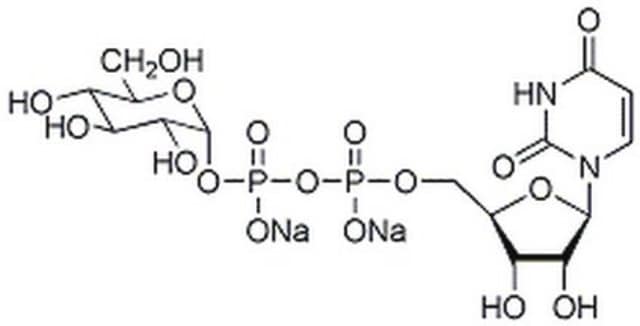774405
(S)-2-Aminobutane-1,4-dithiol hydrochloride
99% (titration)
Sinónimos:
(S)-2-Aminobutane-1,4-dithiol hydrochloride, (2S)-2-Amino-1,4-dimercaptobutane hydrochloride, DTBA, Dithiobutylamine
About This Item
Productos recomendados
Quality Level
assay
99% (titration)
form
solid
reaction suitability
reagent type: reductant
mp
210-225 °C
storage temp.
2-8°C
SMILES string
Cl.N[C@H](CS)CCS
InChI
1S/C4H11NS2.ClH/c5-4(3-7)1-2-6;/h4,6-7H,1-3,5H2;1H/t4-;/m0./s1
InChI key
HWWPXJZINVJNBM-WCCKRBBISA-N
Application
signalword
Warning
hcodes
Hazard Classifications
Acute Tox. 4 Oral - Eye Irrit. 2 - Skin Irrit. 2 - STOT SE 3
target_organs
Respiratory system
Storage Class
11 - Combustible Solids
wgk_germany
WGK 3
flash_point_f
Not applicable
flash_point_c
Not applicable
Elija entre una de las versiones más recientes:
¿Ya tiene este producto?
Encuentre la documentación para los productos que ha comprado recientemente en la Biblioteca de documentos.
Los clientes también vieron
Contenido relacionado
Professor Ron Raines works with Sigma-Aldrich on the development of reagents and tools for chemical biology such as the traceless Staudinger ligation reagent (670359). DTBA (774405), a superior biological reducing reagent to DTT, is another technology to come out of the Raines lab.
Professor Ron Raines works with Sigma-Aldrich on the development of reagents and tools for chemical biology such as the traceless Staudinger ligation reagent (670359). DTBA (774405), a superior biological reducing reagent to DTT, is another technology to come out of the Raines lab.
Professor Ron Raines works with Sigma-Aldrich on the development of reagents and tools for chemical biology such as the traceless Staudinger ligation reagent (670359). DTBA (774405), a superior biological reducing reagent to DTT, is another technology to come out of the Raines lab.
Professor Ron Raines works with Sigma-Aldrich on the development of reagents and tools for chemical biology such as the traceless Staudinger ligation reagent (670359). DTBA (774405), a superior biological reducing reagent to DTT, is another technology to come out of the Raines lab.
Nuestro equipo de científicos tiene experiencia en todas las áreas de investigación: Ciencias de la vida, Ciencia de los materiales, Síntesis química, Cromatografía, Analítica y muchas otras.
Póngase en contacto con el Servicio técnico











